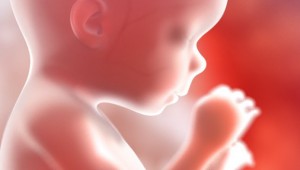 In an opinion piece for the New York Times, Meredith Isaksen wrote about her later-term abortion—the death of her second child—as if it were an act of mercy for her, her family, and the preborn child who died during the abortion. Her sense of her son’s death as an act of compassion toward him and her family made me shudder, but it also provoked me to wonder: “Where do women and men get this flawed concept of preborn human beings as chattel?” Furthermore, what is it about the national discussion of abortion that provokes this kind of “story” to be sensationalized in a major newspaper?
In an opinion piece for the New York Times, Meredith Isaksen wrote about her later-term abortion—the death of her second child—as if it were an act of mercy for her, her family, and the preborn child who died during the abortion. Her sense of her son’s death as an act of compassion toward him and her family made me shudder, but it also provoked me to wonder: “Where do women and men get this flawed concept of preborn human beings as chattel?” Furthermore, what is it about the national discussion of abortion that provokes this kind of “story” to be sensationalized in a major newspaper?
Perhaps some insight can be found in an article by Adam Peters that appeared earlier this year. His piece entitled “If Late-Term Abortion Isn’t Torture, It’s Hard to Imagine What Is” begs the question that, if Americans can debate the pluses and minuses of torturing Islamic extremists, yet fail to see the horror in late-term abortion, what do we really understand about torture? Dismembering an innocent human being and tearing him limb from limb is acceptable in our society, but waterboarding a known terrorist is not? When is torture not torture? When is a person not a person? How can our society be so cruel?
And so we come to the pivotal question, as we always do, regarding our nation and why it is that we place no value on one segment of our population and are willing to toss babies away like garbage simply because they live shrouded in the bodies of their mothers.
After all these years, aborting babies has become so commonplace that many people find it hard to understand why anyone would care who has an abortion and who doesn’t! As one pro-abortion zealot wrote: “Abortion rights are human rights, and no one should be denied their most basic human rights.” In her twisted way, she is saying that human rights are selective and human beings prior to birth are not among the privileged. Indeed, they are the targets.
And sadly this is a prevailing mindset in our world today. This attitude begins at a very young age as a result of propaganda, the influence of family and friends, and the social messages that bombard our children every day. After more than 40 years of brutalizing babies prior to birth and calling it choice, our society now embraces abortion rather than pushes back against the culture of death.
But there is hope. One of the many pro-life educational resources available from the Culture of Life Studies Program is a lesson on the life and work of the world famous geneticist Dr. Jérôme Lejeune. Entitled Dr. Jérôme Lejeune and Trisomy 21, the lesson educates students about the heroism and the suffering of a prominent leader in genetics, and then teaches about the unique and wonderful qualities of those with Down syndrome. According to a CLSP blog post:
As we see from the life of Dr. Lejeune, defending preborn human beings has costs. You may lose some friends. You may not experience earthly recognition for your efforts. Your enemies may hate you and persecute you. But despite all these trials, God will reward you.
As Jesus tells his disciples in the Sermon on the Mount, “Blessed are you when they insult you and persecute you and utter every kind of evil against you [falsely]because of me. Rejoice and be glad, for your reward will be great in heaven.” (Matthew 5:11-12 NABRE)
Defending babies—both born and preborn—challenges each of us to be loving and creative in our arguments, but consistent in our dedication to teach the intrinsic value of each person from his biological beginning until his death. Our message is twofold: To embrace the child prior to birth is to affirm yourself and your own gift of life. And to witness in love because we care for the babies and for those among us who are misguided is to touch their hearts with truth.
How dare we do less? Let us celebrate life and learn how to do it effectively. NO MORE CRUEL AND USUAL PUNISHMENT FOR BABY!



